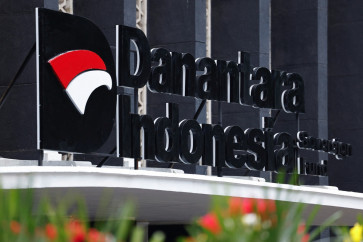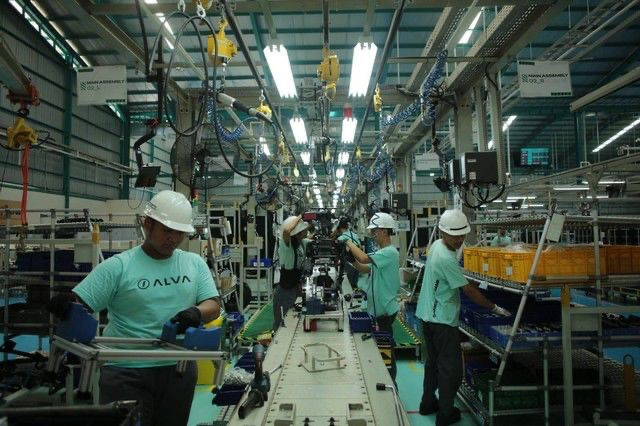Popular Reads
Top Results
Can't find what you're looking for?
View all search resultsPopular Reads
Top Results
Can't find what you're looking for?
View all search resultsGovt fears exploitation ahead of export ban
Industry Minister MS Hidayat said on Monday that the government might introduce an export tax on unprocessed mineral ore in order to avert a massive exploitation of mineral resources before the implementation of the ban on exports of raw mineral products in 2014
Change text size
Gift Premium Articles
to Anyone
I
ndustry Minister MS Hidayat said on Monday that the government might introduce an export tax on unprocessed mineral ore in order to avert a massive exploitation of mineral resources before the implementation of the ban on exports of raw mineral products in 2014.
The minister said that the export tax would be needed as a strict measure against excessive mining of raw metals before the export ban became effective. He indicated that massive exploitation of minerals had already begun to occur in some parts of the country.
“Mining companies are using this transition period as the maximum to exploit our mining products as much as possible and this is a negative thing [we want to avoid],” he said.
Earlier, the Industry Ministry had proposed that the government impose a 25 percent export tax on minerals and coal in 2012, which could be raised by 50 percent in 2013.
Hidayat said that the potential export tax would also help support the newly launched energy and mineral resources minister’s regulation on metal ore exports, beginning from 2014.
Under the regulation, mining firms are required to process all raw metals — including gold, copper, nickel, bauxite and iron — in any smelter in the country, as mandated by the 2009 Minerals and Coal Law.
Indonesia, the world’s top exporter of thermal coal, second-largest nickel producer, and home to the world’s second-largest copper mine, expects to climb the value chain by pushing up the capacity of domestic-metal production, allocating the processed products to meet local needs, using the by-products of the processed metals to expand the chemical and fertilizer industry, creating more jobs and boosting the country’s revenue.
Around 20 foreign investors have expressed their interest in building smelters for various mining materials in the country.
Finnish firm Outotec reportedly agreed with PT Antam, Indonesia’s leading diversified mining and metals firm, to conduct a feasibility study for the very first smelter-grade alumina refinery planned in Indonesia, Reuters recently said.
Statistics released last year by the Industry Ministry showed that annually Indonesia exported 8.6 million tons of iron ore, while selling around 1.9 million tons of iron sand, reserves of which would apparently be depleted in three years.
With an estimated investment of US$1 billion, the country may build a sponge and pig-iron processing industry to supply the local steel industry with a capacity of 5 million tons per year once the exports end.
Indonesian Mining Association (IMA) deputy chairman Tony Wenas said that the imposition of an export tax would be feasible as an interim solution for exporters of raw materials before the total export ban became fully effective. He said that many small miners would be forced to close their operations if they were not allow to export their output.
The Indonesian Chamber of Commerce and Industry’s (Kadin) deputy chairman for energy and forestry, Alzier Dianis Tabrani, shared a similar view that any choice other than pushing for an export ban at present, could possibly avert closing down small mining operations across the country.










